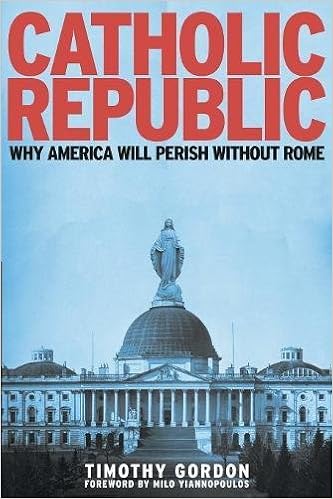
This book dispels many popular and sacrosanct misconceptions about the foundational ideas underlying the American Republic. Gordon shows that Protestant thinkers only plagiarized Catholic ideas, in order to come up with the ideals upon which America is built. However, such ideas, at their core, are not consonant with Protestantism. The book masterfully demonstrates this--but in a humorous, pithy way.
The author clearly explains the concept of Catholic Natural Law and presents a plausible argument that it was hijacked by the religious right and the secular left in writing the Declaration of Independence and the Constitution of the United States. Consequently, the purported protected individual rights in those two documents have devolved in our culture to their opposites. Most notably liberty has been transformed into license and freedom of religion to freedom from religion.
The symptoms of America’s decline are all around us: abortion on demand, the shrinking of liberty and the growth of the state, a pagan popular culture, the destruction of families and free markets, and the reduction of science to petty pop-technology. Few, if any, have sought to explain the origin of all of these problems at once. In Catholic Republic, Timothy Gordon argues that America’s premature withering could have been avoided if only the founders had fully incorporated into the new republic the Catholic natural law.
The anti-Catholic bias of 18th Century America kept our Protestant and Enlightenment forefathers from admitting their dependence upon the ideas of Aristotle, St. Thomas Aquinas, and the early Jesuits. In Catholic Republic, Gordon unpacks our nation’s complicated history of repudiating, yet borrowing, the Catholic ideas about politics and nature, which turn out to be indispensable to our—and all—republics.
As a quibble, however, I disagree with the author's treatment of Distributism as promoted by Hilaire Belloc and GK Chesterton. Distributism is an economic system in which the means of production, property, is available to everyone either individually or by family. The author agrees that this is a good end, but he infers that the means to that end is through government intervention to somehow redistribute the underlying property, which would be a bad means. However, he admits that neither Belloc nor Chesterton discussed any means. I would suggest one means is that individuals compromise and work in the work force (for the man) until they earn enough property to initiate production and eventually transition to just their production.
No comments:
Post a Comment